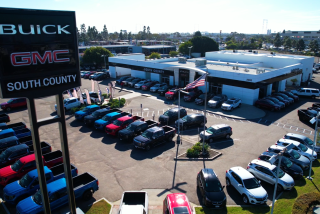Russians snap up foreign cars
- Share via
ST. PETERSBURG, RUSSIA — Boris Chivanov sat in his 1997 Russian-made Lada and explained, flaw by flaw, why he had decided to part ways with the purple hatchback.
The wipers stopped working long ago. The trunk hatch wouldn’t open. “To close the windows,” he said, “you have to use your fingers to pull the glass all the way up.” That morning, Chivanov, a St. Petersburg police officer, bought a new 2007 Opel Astra, joining millions of Russians who, buoyed by their resurgent economy, are casting off their Russian-built Ladas, Zhigulis and Moskviches in favor of Camrys, Focuses and Passats.
The car revolution sweeping the country is a reflection of the burgeoning middle class in major cities -- and a recognition by foreign carmakers that a country down on its heels less than a decade ago now represents one of the largest bonanzas in the global auto market.
It’s a trend that is transforming Russia’s second city, St. Petersburg, into what General Motors Chief Executive Rick Wagoner calls the “Detroit of the North.” Toyota is churning out 20,000 Camrys annually at its new plant here and plans to ramp that up to 50,000 cars by next year. Across the street from Toyota’s sprawling factory, GM is building a plant that will produce 25,000 Chevrolet Captiva SUVs a year.
Ford builds Focuses at a plant in a St. Petersburg suburb. Nissan, Suzuki and Hyundai all have plans to build factories here. A second hub for foreign carmakers is emerging in Kaluga, a city of 350,000 well within the orbit of Moscow’s booming economy. Volkswagen recently began making Passats and Skoda Octavias at its new plant there. Peugeot Citroen plans to open a factory in Kaluga, and a new Volvo plant is expected there next year.
“We are talking about a race, and it’s taking place in Russia,” says Siegfried Wolf, chief executive of Canada’s Magna International, one of the world’s largest auto parts suppliers. “It’s a fast-growing market in Russia, much faster than we expected.”
During the Soviet era, car ownership was a luxury obtained by Communist Party elite and only the luckiest of everyday Russians. Soviet citizens who socked away enough rubles to buy a Lada or boxy Moskvich still had to endure waiting lists of up to 10 years.
Back then, trucks and buses made up most of the traffic on Moscow’s largely empty streets. Today, rush-hour bottlenecks occur throughout the workday and make what should be a 15-minute trip downtown last an hour or more. It’s not uncommon to see BMWs and Chevy Blazers skirt logjams by streaking down sidewalks, blaring their horns at pedestrians in the way.
Moscow streets may have reached a saturation point, but Russia’s car market hasn’t. There are still just 124 motor vehicles per 1,000 people in the country, compared with 765 per 1,000 in the Unites States, according to the latest data compiled by the United Nations.
As a result, foreign carmakers are flocking to Russia to set up production in such places as Shushary, a gritty, industrial district on the southern edge of St. Petersburg. GM’s plant is the district’s newest addition, under construction within sight of the Camry factory.
“The rapid growth in this market is unbelievable,” says Ichiro Chiba, director of Toyota’s St. Petersburg plant. “And it’s undeniable that this market can only grow, with the middle-class part of society being its locomotive.” Given the potential, industry executives say their main challenge boils down to producing cars fast enough to meet demand.
“If you look at the world’s carmakers coming into Russia, it’s all about who’s faster . . . making the right strategic moves to build up capacity and to build up a strong dealer network,” says Carl-Peter Forster, president of GM Europe.
For Russian carmakers, the challenges are more daunting. The country’s auto industry must find ways to survive, and that might mean teaming up with foreigners. Avtovaz, maker of the ubiquitous Lada, recently sold a 25% stake in the company to French carmaker Renault for $1 billion.
If Russian carmakers ever get back on track, they’ll have to win over customers like Chivanov, 35. On the day he bought his Opel, a friend drove him to the dealership because the clutch on his Lada broke.
“Will Russian carmakers ever catch up to foreign carmakers?” Chivanov wondered aloud. “Not any time soon.”






